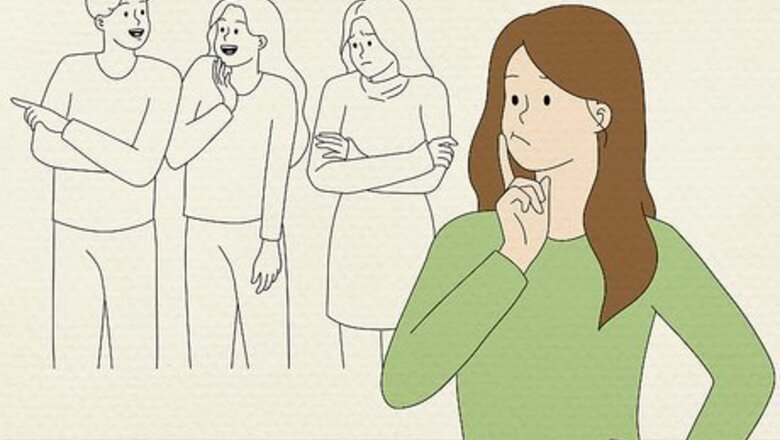
views
Addressing the Causes of Your Possessiveness
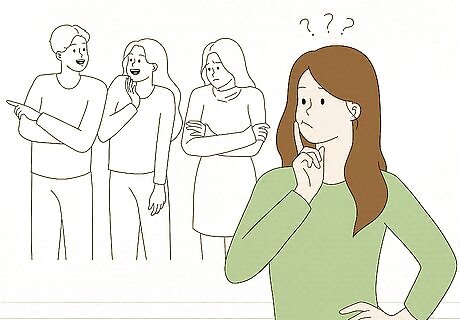
Analyze your behavior. Look for the root cause of the problem by reviewing instances in which you behaved or felt possessively about your friendship. Try to make connections between the situations to see if you can find some kind of common ground that might be acting as a trigger for your possessive behavior. Consider ways you might avoid these triggers and try to move forward. For example, you may discover that most of your possessive feelings arise when you are hanging out in a group of three because you often feel excluded when there are only two other people. If this is the case, you should just try to avoid hanging out in threes. Try to organize one-on-one hangout time or events for a larger group of people.
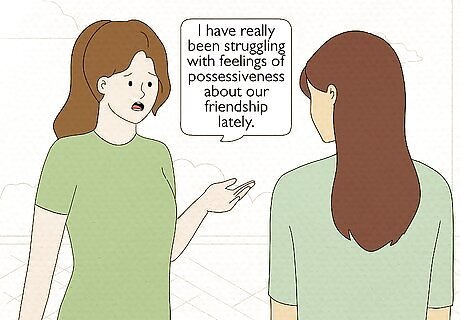
Talk about your feelings. Try to explain your possessive behavior to your friend. Talk to your friend in an open manner and tell them about your feelings. If they understand what you mean, they may very well try to spend more time with you and help you to feel reassured of their support for you. It may be possible for you guys to work through it together. Try saying something like, “I have really been struggling with feelings of possessiveness about our friendship lately. I think it might be related to how I felt about my dad when I was younger, but I know that it's not a healthy way for me to interact with you. I am trying to work on this and I would really like it if we could get through this together as friends.”
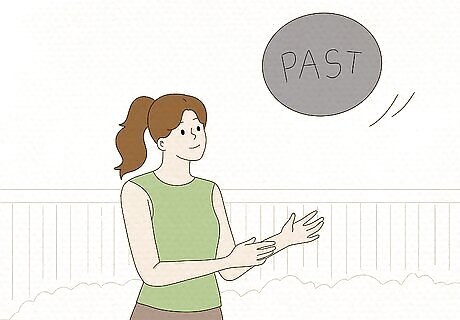
Let go of your past. Think about any past incident you might have had relating to cheating or losing a best friend. Realize that it was just a one-time incident and that this experience cannot be generalized. Remember that each person is different and each relationship is different. Let the past go as you cannot change what had happened. Focus on the present friendship and forget the past. Realize that this friend didn't do this thing in your past and, therefore, should not be punished for it.
Changing Your Possessive Behaviors
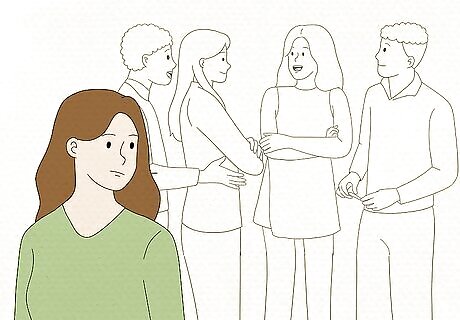
Give your friend space. Exhibiting possessive behavior will probably not do anything to make your friendship closer. If you feel like you are acting possessively toward your friend, you should back off and give them some space. Let your friend make their own plans and don't be so obsessed with being involved. Try letting your friend call you first or wait for them to make plans with you. Some people need more space than others, so you might be crowding the friendship without realizing it.
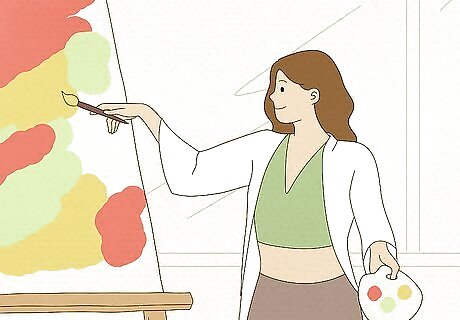
Learn to live your own life. Create your own life outside of the friend you feel possessive over. Evaluate what your likes and dislikes are and become involved with hobbies or other worthwhile pursuits. Focus on your own daily tasks at home and work, and develop a social life that doesn't always depend upon your friend. The more time you spend on yourself, and developing your own unique identity, the more interesting you will become to others and your friend. While it is nice for you to have a good relationship with your friend and to spend time with her, it is also beneficial to spend time apart. Possessive behaviors will be perceived as increasingly overbearing as they continue and will end up pushing your friend away. Learn to trust your friend and realize she is choosing to be in a friendship with you. Allow her to have other friendships outside of yours.

Wait for people to come to you. You are an interesting person in your own right and people will be attracted to you, especially if they don't feel like you are desperate for their attention. People don't generally like feeling the pressure of a possessive friendship, so let someone else do the work of worrying for a change. Wait for other people to initiate contact with you on occasion and see what happens. You might be surprised.
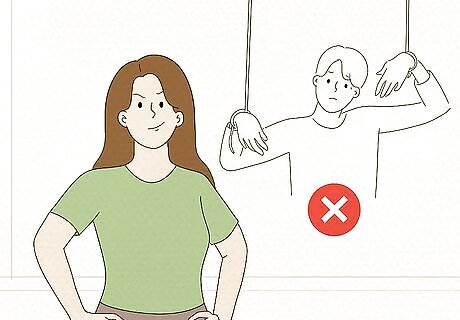
Don't try to change your friend to meet your needs. A large part of possessive behavior is the need to feel in control. Do you often ask yourself where your friend was when she wasn't with you, whom she spoke with, and the content of every conversation she had when she was not with you? Do you see yourself beginning to dread her ability to make personal decisions about things without your influence? Having concerns and interest in your friend's life is normal to a point, but trying to control their every move is not. Realize that the only person you will be able to change in your life is yourself. Let go of the underlying tension you may feel if you are not in control. It does not matter how good your intentions are, if your friend feels suffocated by your interventions into their life your controlling behavior is already destroying the relationship. Let go of your need to control, and you will see great improvements in your relationships and life.
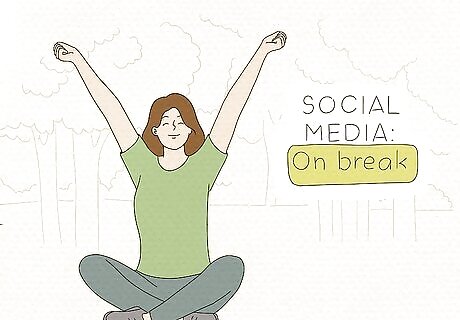
Unplug from technology and social media. It can be all too easy to keep up with people today – mostly because of modern technological advances in social media-related fields. Take action to remove the temptation to internet creep from your life. Try hiding them from your social media accounts if you just can't help yourself. Or you could even take a break from social media in general for a while to see how that makes you feel.
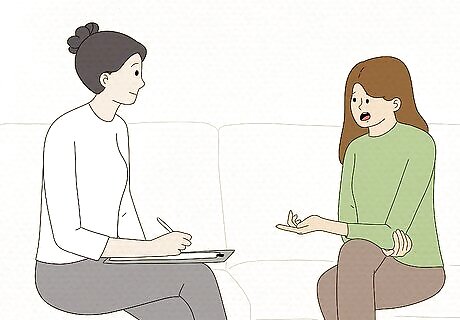
Seek outside help. If you are having trouble controlling your possessive behavior, it might be time for you to get some professional help. Going to a counselor or therapist could be very beneficial for you in this situation. They can help you figure out the underlying causes of your possessive feelings. A professional could also help you understand how to cope with these feelings in the future. Talking to a professional who is not invested in the situation might help you see it in a new light as well. This could help you realize how your possessive behavior is affecting your relationship and what you might be able to do to improve the situation.
Filling the Void Left Behind
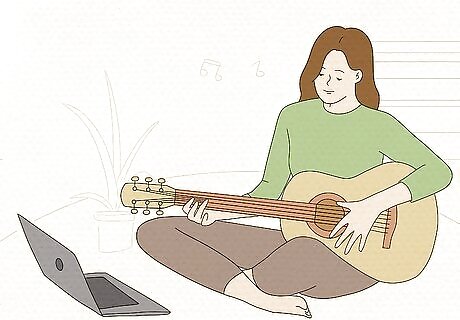
Build your life. Put yourself into a variety of activities and get yourself busy. This way, you have less time to think about what your friend is up to and you'll also be making your life more interesting to others so you can attract more friends in the future. Start playing a musical instrument, start going to church, start doing anything that is good for you and will help you move forward from this point. Work on becoming a more well-rounded person by investing in different activities and experiences. Don't rely on one person to make you feel good about yourself.
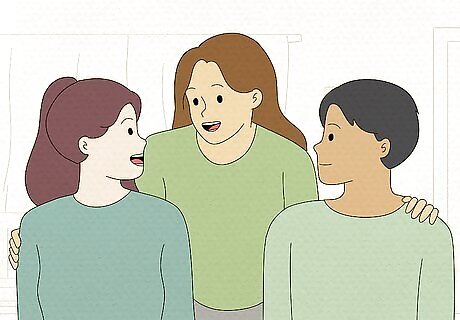
Get to know your friend's friend circles. Be active, socialize and network in your friend's circles so that you might be able to spend more time with them. Do not spy around; instead, respect your friend's space and give a lot of trust to your friendship. Ultimately, this respectful hands-off approach will work out for your own good. If you become friends with more of their other friends, you're bound to spend more time with your friend by default. However, this could be seen as another possessive behavior if you're not careful.
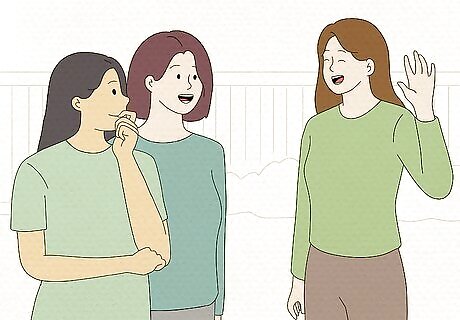
Expand your own social circles. Part of the reason you feel so possessive of your friend is probably because you have been limiting yourself to that one friend for a while. If you have other friends that you hang out with and invest in, you won't need so much emotional support from that one friend. Spread your needs out over a group of people. Try meeting new people (at places like school, church, or in your neighborhood) as well as cultivating friendships with people you already know casually.
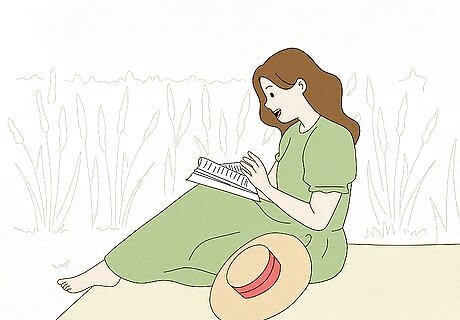
Distract yourself. Feelings of possessiveness tend to get worse when we just sit and focus on them. As long as you allow yourself to obsess over this one friend, you will not get over it. Try distracting yourself with anything possible to get your mind off of it. You could even enlist the help of another friend if you trust them enough not to tell other people about it. Try reading a book, watching a movie, going for a walk, calling a friend, talking to your mom, or even creating something artistic.












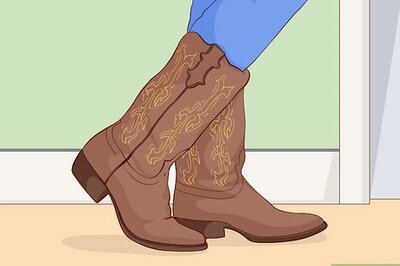






Comments
0 comment